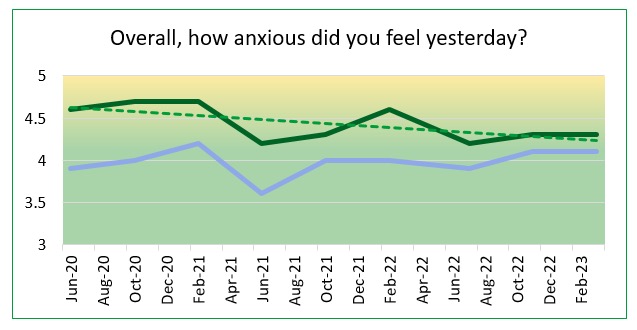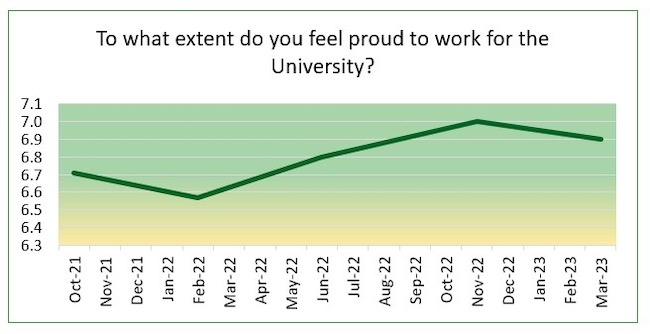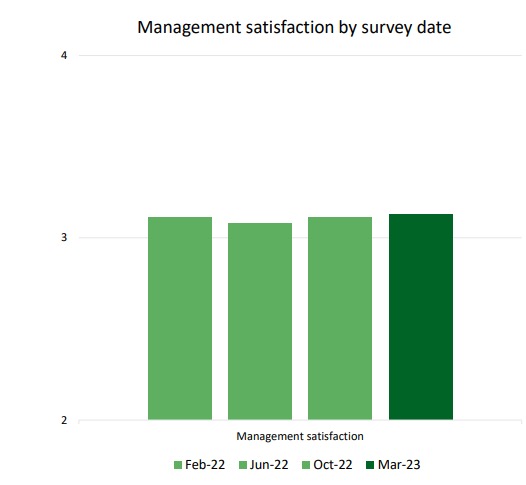Survey results
Thank you for completing the recent Work and Wellbeing survey. These are the results of the core questions in the Work and Wellbeing Survey run in March 2023. The report outlines the headline results. The response rate for the survey was 1,085 (29%).
Summary
As well as the core questions on wellbeing, harmony and management, the March survey focused on an issue regularly raised by you; pay and benefits. The core results remained largely stable from previous surveys. Taking account of seasonal variations coupled with greater consistency in experience among demographic groups, this is positive.
The emerging consistency in scores within the various demographic groups (for example gender, age) may signal a more cohesive experience of working at the University and is perhaps an indication of a more stable period after such recent turbulence. However certain groups continue to experience lower wellbeing and harmony and needs to be understood more fully.
The focus of the survey will have likely influenced the subject matter of the qualitative comments. These were dominated by pay and benefits and useful insight was provided on what non-pay benefits might look like and the significance of personal choice.
What's next?
The core results have been presented to the University Executive Board (UEB) and areas identified for further work include exploring choice-based reward and improving understanding of individual contribution to university success. A detailed analysis of the pay and benefits results will be reported separately to a future UEB.
Longitudinal analysis of core questions
ONS4 Wellbeing questions




- In the latest survey, ONS4 wellbeing indicators remained stable compared the previous survey in November 2022 and indicated a slight improvement compared to March last year
- Life satisfaction, whilst having improved compared to November 2022, was marginally lower and happiness significantly lower than in the July 2022 survey, but not statistically different from other survey timepoints. Feelings of worthwhile and anxiety levels were not significantly different than at previous timepoints
- University figures continue to be slightly lower than national and local authority levels
Harmony questions



- Sense of community has shown an upward trend reaching highest levels so far
- Staff's sense of pride to be working at the university, while lower compared to the previous survey in November 2022, was significantly higher than in February 2022
- Satisfaction with work-life balance has remained the same since November 2022 and has not changed significantly over time since October 2021
Management satisfaction questions

- Management satisfaction was statistically significantly higher in the March 2023 survey than at previous timepoints since February 2022. Comparison with October 2021 survey was not possible due to no management satisfaction data being collected at that point
Qualitative analysis
Responses from staff to the question on any other comments they would like to make. 203 comments were received. The main themes identified were pay, benefits and workload.
Pay
- Insufficient, compounded by cost of living
- Unfavourable comparison to external market
- Exacerbated by workload pressures
- Impact on retention
- (Some) reward policies –perception of unfair, out of date
Benefits
- Praise for current benefits specifically flexible working
- Suggestions for future benefits particularly flexible working
Workload
- Excessive
- Increasing
